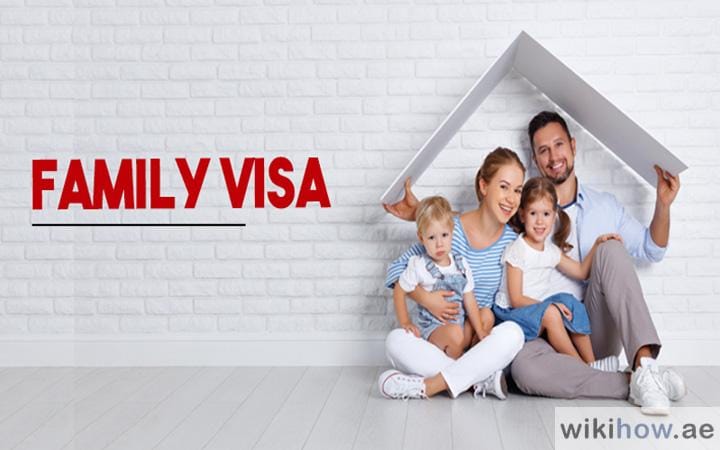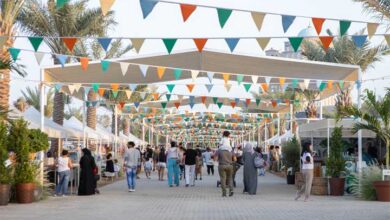How Do I Sponsor My Family in the UAE? Complete 2025 Guide

Family sponsorship in the UAE is a legal process that allows expat residents to sponsor and bring immediate family members (spouse, children, and in some cases parents) to the UAE, and live with them. This approach is more than just a paper trail. It is fundamental to the commitment and values of family and stability within society. The family sponsorships for residents in the UAE falls under the jurisdiction of the GDRFA (General Directorate of Residency and Foreigners Affairs), and the ICP (Federal Authority for Identity, Citizenship, Customs and Port Security). The sponsorship process is synonymous with regulations and eligibility checks such as but not limited to: means of income, means of housing, medical checks and the validity of supporting documents. The family sponsorship system is designed so that expat residents are able to have a family unit and still contribute to the UAE society and economy. It showcases the uniqueness of UAE sponsors to expat residents to facilitate potential long-term and/or permanent residents. When the appealing aspect of family sponsorship comes with a clear outline for guidance and regulations to help create the sponsorship process for the sponsors and sponsored UAE residents, the UAE becomes a desirable place to attract qualified workers and makes it easier to have family stability with a family-friendly way of life.
Quick review of the article’s key points:
- UAE family sponsorship allows expats to live with their immediate family members.
- The process is managed by GDRFA and ICP authorities.
- Male sponsors usually need a minimum salary of AED 4,000.
- Female sponsors typically require a salary of around AED 10,000.
- Legal, attested marriage and birth certificates are mandatory.
- Spouses and children are the easiest family members to sponsor.
- Sponsoring parents requires higher income and annual renewals.
- Proof of housing (Ejari) is required for all sponsors.
- Medical tests and health insurance are compulsory for adults.
Who can sponsor family members in UAE?
The ability to sponsor family members in the UAE is circumscribed by eligibility criteria related to the sex, profession and salary of the sponsor. The government has a vested interest in immigration control, but also seeks to maintain family unity, allowing residents to be with their families under clearly defined criteria. For those looking to bring their loved ones to the country, understanding the Family visa in UAE process is essential, as it outlines the necessary requirements and steps for successful sponsorship.

Eligibility for Male Sponsors
If male expatriates are working in the UAE, they are usually eligible to sponsor their immediate family including their wife and children, as long as they meet the required criteria. The important criteria include:
- Occupation: The male sponsor normally needs to have a professional job or skilled occupation, of which
- examples include: educator, engineer, health care professionals, or in business.
- Minimum Salary: They normally need to be earning at least AED 4,000 a month or AED 3,000 plus accommodation from the employer.
- Valid Residence Visa: At the time of application, the male sponsor needs to be in possession of a valid UAE residency visa.
- Housing: The sponsor is required to provide housing evidence in most cases by providing a valid tenancy contract or Ejari.
- Legal Documentation: All marriage certificates and birth certificates must be attested and legally recognized to validate the relationship.
Lastly, in regard to job titles, there have been relaxed criteria in recent years, so as long as the male sponsor meets the income requirement, the sponsor should be eligible regardless of their employment.
Eligibility for Women Sponsor
Women residing in the UAE can also sponsor their family members, but under more strict eligibility criteria. The conditions around this will further show how visa sponsorship proceeds demonstrate refinement in gender policies within the UAE while still being conscious of immigration policy. The conditions include:
- Profession: The female sponsor must be employed in a profession which is permitted and skilled for example doctor, nurse, teacher, engineer or in a government or semi-government position.
- Salary threshold: Typically a minimum of AED 10,000 per month salary is required, although in some emirates, AED 8,000 may be allowed if housing is included.
- Residence and Housing: As with male sponsors, women must provide evidence of housing and also hold a valid residence visa.
- Special approval: The GDRFA or ICP may require special approval in some cases, especially if the woman is sponsoring her husband or children.
As a conclusion, all both male and female sponsors must demonstrate financial stability, legal family relationship and ability to sustain the dependants as family members in the UAE.
Types of Family Members You Can Sponsor
Expatriate residents of the UAE may be sponsored for specific categories of family members under certain conditions. The government encourages family reunification and allows sponsorship of immediate family members, such as spouses and children, and in some cases, extended relatives like parents or siblings, provided certain criteria are met. Understanding eligibility rules and application procedures is essential. For this reason, it’s crucial to stay informed about the latest UAE Family Laws and Regulations to ensure a smooth and compliant sponsorship process.
Spouse and Children
Sponsoring a spouse and children is a fairly simple and common type of family sponsorship in the UAE. With regard to sponsoring a spouse, the resident is required to submit an officially attested marriage certificate by a recognized authority from the home country of the resident, translated into Arabic, and attested by the UAE Ministry of Foreign Affairs. When sponsoring children, male sponsors can normally sponsor sons up to the age of 18, or 21 if a son is in full time education, and daughters can be sponsored at any age, as long as they are unmarried. In all cases, the birth certificates of the children must be provided, attested and translated into Arabic, in order to support the parent-child relationship. An additional requirement is for children to be enrolled in school and have health insurance coverage to be able to complete the sponsorship process.
Parents
Sponsoring parents in the UAE also has stricter criteria and more requirements than sponsorship of other family members. The applicant has to demonstrate legal proof of being the sole responsible caretaker for the parent and that there are no other relatives left in the home country that can provide support (through affidavits or statutory declarations). The applicant must earn a higher salary than normal—a minimum salary of AED 20,000 annually or AED 10,000 monthly if your employer provides accommodation. The applicant must have health insurance for both parents, which must be renewed yearly. Some immigration officials may also require a refundable security deposit of around AED 5,000 per parent. Parent visas are usually issued for one year terms and must be renewed on an annual basis, as long as the applicant remains eligible.

Salary Requirements and Eligibility Criteria
When sponsoring family members in the UAE, specific eligibility criteria must be satisfied, including salary. Male sponsors are normally required to earn a minimum monthly salary of AED 4,000 AED 5,000 and female sponsors have to earn at least AED 10,000 in normal circumstances. There can be slight deviations on the income, depending on the emirate and generally the immigration office will periodically revise the salary requirements. Not only must sponsors meet the monetary requirement, but they must also demonstrate that they have suitable accommodation for their family members. Generally, a registered tenancy contract or an Ejari certificate will suffice, proving that the property is adequate in living standards for the sponsored family members.
Legal and Regulatory Updates for 2026
In 2026, the UAE implemented a number of legal and regulatory enhancements in a bid to make the family sponsorship process for expatriates both easier and more efficient. Key reform changes included simplified application processes for visas with streamlined requirements and timelines for processing, particularly for skilled professionals and long-term residents. A clear shift towards expanding and improving digital platforms such as the ICP and GDRFA portals has improved the user experience, allowing for faster online applications, document submissions and real-time notifications. Taken in their entirety, these changes demonstrate the UAE’s vision regarding the family as a central social organization that strives to create social stability and economic advancement.
Documentation Required for Sponsorship
The following are the documents required to support a family in the UAE.
- Valid passport copies of both sponsor and family members
- Recent photographs
- Emirates ID
- Proof of Relationship
- Attested marriage certificate
- Birth certificates for children
- Affidavits in case of non-traditional relationships
- Salary certificate from employer
- Labor contract
- Bank statements (usually 3–6 months)
Step-by-Step Visa Application
The application process for sponsoring family members in the UAE involves a series of structured steps that must be completed in the correct order to ensure successful visa issuance.

1. Gather Required Documentation:
The first and arguably most important step is to collect all documentation you will need in the proof of eligibility and proof of relationship to your dependents. These documents include for the eligible dependents passport validity, attested marriage and birth certificates (translated from the relevant language into Arabic), Emirates ID, tenancy contract (Ejari), current photographs, and documents confirming income such as a salary certificate and contract. You want to have these available for a smooth application process.
2. Apply for Entry Permit:
Once you have the required documents, identify if application will be through GDRFA (if residing in Dubai) or from the ICP portal (for other emirates), and prepare to apply for the entry permit for the dependents. The entry permit allows your family members to enter the UAE legally. Be sure to upload the required documentation and pay the associated government fees.
3. Family members Travel to the UAE:
Following approval of the entry permit, your family can now travel to the UAE. Double-check the entry permit to confirm to arrive to the UAE in the approved time permitted. After they have arrived, you should initiate the next steps quickly to avoid overstaying the entry permit and incurring a fine.
4. Complete a Medical Fitness Test:
All family members age 18 or older are required to complete a medical fitness test administered by an authorized health center. The medical fitness test includes screening for infectious diseases, including tuberculosis and positive HIV status. In order to submit the residence visa application, you will need a clear medical report.
5. Obtain Health Insurance:
Health insurance must be completed for all sponsored family members. You are required to obtain an approved insurance policy that meets the requirements of the UAE which will be needed for the visa application and renewal.
6. Submit a Residency Visa Application
Now that you have your medical results, insurance, and entry permit, you can submit the residency visa application. There are immigration authorities in Dubai, where all of your documents will be checked and the residency visa stamped in the family member’s passport.
7. Emirates ID Application
The last step is to apply for the Emirates ID. This process includes biometrics (fingerprints and photos). Once each family member has been approved, they will be issued an Emirates ID that they will use for identification in the UAE.
Validity and Renewal of Family Visas
Family visas in the UAE can be granted for 1, 2, or 3 years depending on the sponsor’s employment contract, residency status, and emirates requirements. It is critical to monitor the expiration of family visas since renewal applications must be initiated at least 30 days prior to the expiration date, otherwise the family visa can incur a penalty or lapse. Renewals require updated information and documentation including a signed tenancy contract (if possessed), salary certificate from the sponsor, expired or renewed Emirates ID, and renewed health insurance. Family members aged 18 years or older must also carry out an additional medical fitness test. Preparing and procuring for all of these requirements prior to the expiration date of the family visa ensures the sponsored family members have continuous legal residency status in the UAE. Once the visa process is complete, families can enjoy the Best family activities in Dubai, making the most of their time together in one of the world’s most vibrant cities.
Conclusion
Sponsoring your family members in the UAE is a complicated process, but clearly, it’s possible and demonstrates the UAE’s commitment to family cohesion and social stability. It is important to know the eligibility requirements, documents needed and how the application process works, regardless of whether you are bringing your spouse, children, or parents to live with you. Although sponsorship and family reunification have shortcomings, many necessary improvements have been made in recent years, as well as enhanced online services to make this sponsorship process more accessible than it has been in the past. By understanding the system, doing as much preparatory work as possible and meeting the necessary requirements, you can achieve the goal of sponsoring your family members and creating a family environment as you create your home and life in the UAE.
FAQs
1. Can I sponsor my family in the UAE if I work in a non-professional job?
Yes, recent rule changes focus more on income level than job title. As long as you meet the salary and housing requirements, you may be eligible.
2. What is the minimum salary to sponsor a spouse and children?
The minimum salary is typically AED 4,000 or AED 3,000 with employer-provided accommodation for male sponsors and around AED 10,000 for female sponsors.
3. Can I sponsor my parents in the UAE?
Yes, but it requires a higher income (around AED 20,000) and proof that you are their sole caregiver, along with annual visa renewals and full medical insurance.





